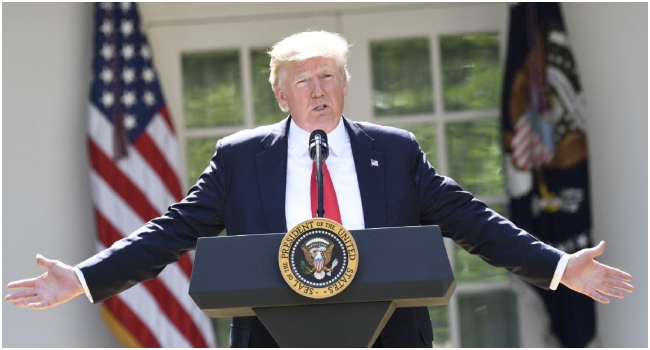President Donald Trump has ordered the declassification of documents related to three of the most significant assassinations in U.S. history: those of John F. Kennedy, Robert F. Kennedy, and Martin Luther King Jr. Trump announced the directive during a Thursday press briefing, stating that it was a long-awaited step for many. “A lot of people have been waiting for this for decades,” he said, adding, “Everything will be revealed.”
The order tasks top officials to formulate a plan for declassifying the documents within 15 days, aiming to uncover the truth behind these pivotal moments in American history.
John F. Kennedy, the 35th U.S. President, was assassinated in Dallas in 1963, followed by the tragic killings of his brother, Robert F. Kennedy, in 1968, and civil rights leader Martin Luther King Jr. in Memphis the same year. While many related documents have been released over time, a significant number, especially those linked to the JFK case, remain redacted.
The official investigation into JFK’s death concluded that Lee Harvey Oswald acted alone in killing the president, but many questions linger about the true nature of the event. Numerous conspiracy theories have suggested possible involvement from government agencies, organized crime, and other mysterious figures. A majority of Americans continue to believe Oswald was not the sole assassin, according to long-standing public opinion.
In 1992, Congress passed a law that mandated the release of all documents associated with the JFK investigation within 25 years. While both President Trump and President Joe Biden have overseen the release of thousands of documents, millions more remain partially or fully withheld. Trump’s initial promise to declassify all files during his first term was partly delayed after pressure from the CIA and FBI to keep certain documents sealed. However, the new executive order emphasizes that continuing secrecy is “not consistent with the public interest.”
Jefferson Morley, a JFK assassination expert and former Washington Post journalist, acknowledged the significance of Trump’s recent action but noted that the true impact will depend on how the documents are released. He pointed out that the process is still in its early stages, and the details of the implementation are yet to be clarified.
Some of the documents released in recent years have shed light on the circumstances surrounding the assassination, revealing new details, including the CIA’s surveillance of Oswald. Notably, in 2023, Paul Landis, an 88-year-old former Secret Service agent, disclosed that he had retrieved a bullet from the presidential car after Kennedy was shot, raising questions about the official account of a single bullet striking both Kennedy and Texas Governor John Connally, who was also injured in the attack.
While Morley believes the full release of redacted documents may challenge the narrative that Oswald acted alone, he cautions that there may be no “smoking gun” that definitively resolves the mystery. Experts expect the CIA and other agencies to push for continued secrecy over certain details.
During the signing of the order at the White House, Trump handed the pen he used to Robert F. Kennedy Jr., the son of the late senator and nephew of President Kennedy. RFK Jr., who has long expressed skepticism about the official accounts of both his father’s and uncle’s assassinations, was present at the ceremony. He has also voiced doubts about Sirhan Sirhan’s role in his father’s killing and believes the case may involve a larger conspiracy.
Similarly, the assassination of Martin Luther King Jr. by James Earl Ray has been subject to controversy. Members of the King family have raised questions about Ray’s sole involvement, suggesting a more complex conspiracy behind the civil rights leader’s tragic death.
Trump’s executive order marks the beginning of what could be a pivotal moment in uncovering the truth behind some of the most consequential assassinations in U.S. history. The declassification of these documents could offer new insights and challenge long-held beliefs, but how much remains sealed in the name of national security is yet to be seen.
